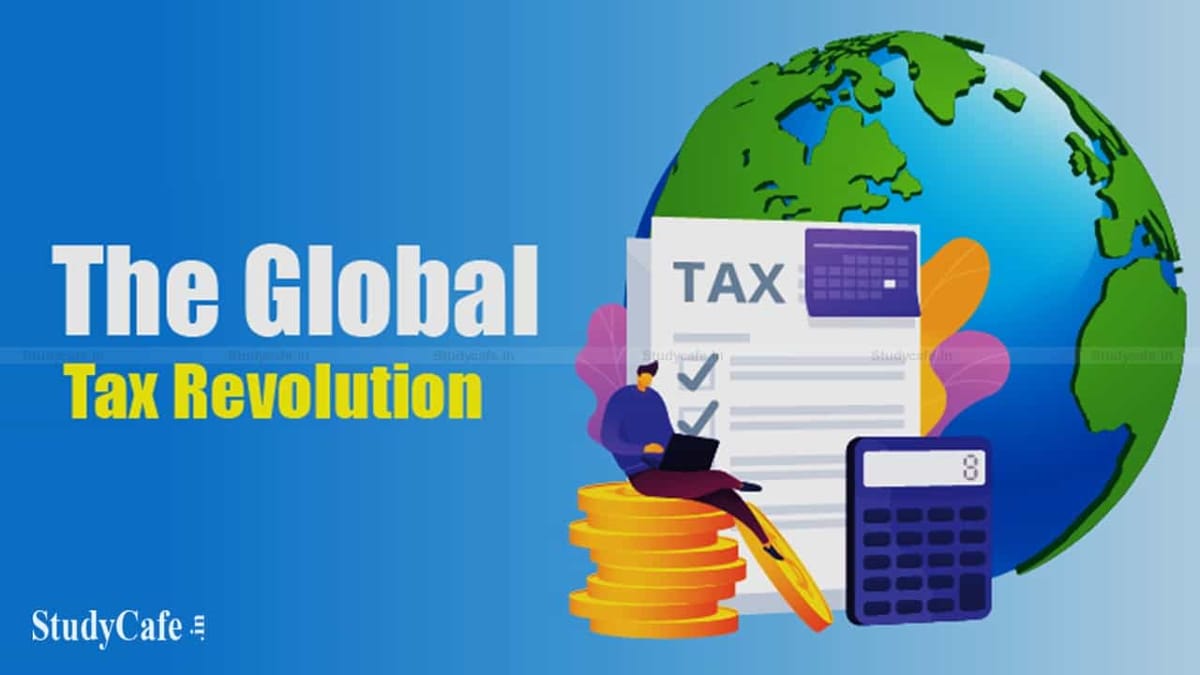Revolutionary Global Tax System V/S Digital Giants
Reetu | Oct 29, 2021 |

Revolutionary Global Tax System V/S Digital Giants
To curb the tax evasions using creative ways by MNCs, 136 countries comprising 90% of global economy have come together for a global tax system to tackle with recent, rapid and expansive digital transformation. The digital giants like Facebook, Google, and Amazon exploit the current taxation system by moving profits from the place where they do business to tax havens where they have to pay the lowest taxes. The talks have been going on since July as most of the nations do not want these MNCs to avoid tax liabilities especially after the economies of the nation are severely hit by the pandemic.
Because of the globalization, the companies were allowed not to go through double taxation. The provision, though implemented for smoother practicability, was misused by the MNCs extensively. Suppose if a company is headquartered in Country X had to pay more taxes, all they had to do is get it registered in a tax haven and that would have allowed them shifting of profits and evading the taxes. Digitization makes it easier for them and this new system is aimed to combat such creative methods facilitated by this modern age of digitization.
As the Organization for Economic Co-operation and Development (OECD) calls it, the new taxation system has twin pillars. One is source rule and the other is residence rule. According to OECD, the new regime will ensure a proper and just distribution of profits among countries against MNCs, including digital giants, allowing them fair tax rights. The source rule will allow the countries to tax the MNCs, specifically the ones with global incomes above € 20Billions and profitability above 10%, on their incomes. After the new rules, 25% of profits above 10% upper limit would be sent back to market countries. Predictably, this would add approx € 100 Billion profits to market jurisdiction every revenue year.
Under the second pillar of residence rule, a global minimum tax rate of 15% is proposed without any upper limit on the maximum tax which would apply on the companies with revenue over €750 Million. With the new rate, it is estimated to generate around USD 150 billion in additional global tax revenues annually. Now, for instance, a company is headquartered in Country X where the tax rate is more than 15%. And to evade taxes, it gets registered in country Y, where the rate is let’s say 11%. The company will have to pay remaining 4% to the residence country. It is to bring companies under scope, which are within their borders but operating from tax havens.
Earlier countries with low tax rates like Ireland, Hungary and Estonia, which have at least some corporate taxes below the proposed minimum resisted to accept the new tax regime but later on agreed for it. As of now, only four countries namely Kenya, Nigeria, Pakistan, and Sri Lanka have not assented to it out of 140 members of OECD. In the words of Pascal Saint-Amans, the director of OECD, this new proposed tax regime will benefit India. Since July, the global tax regime was welcomed by Indian Finance Minister Nirmala Sitharaman. The discussion also took place on a telephonic call between her and US Treasury Secretary Yellen earlier and recently, India was one of the 134 countries who shook hands on the implementation of this new system. The new regime would be implemented by 2023. The time gap is given for the countries to accustom their tax laws according to the new rules. Accordingly, India will have to repel tax laws on digital services or the equalization levy and give an assurance that no such provisions will be made in future.
BY : Sandeep Kumar
In case of any Doubt regarding Membership you can mail us at [email protected]
Join Studycafe's WhatsApp Group or Telegram Channel for Latest Updates on Government Job, Sarkari Naukri, Private Jobs, Income Tax, GST, Companies Act, Judgements and CA, CS, ICWA, and MUCH MORE!"